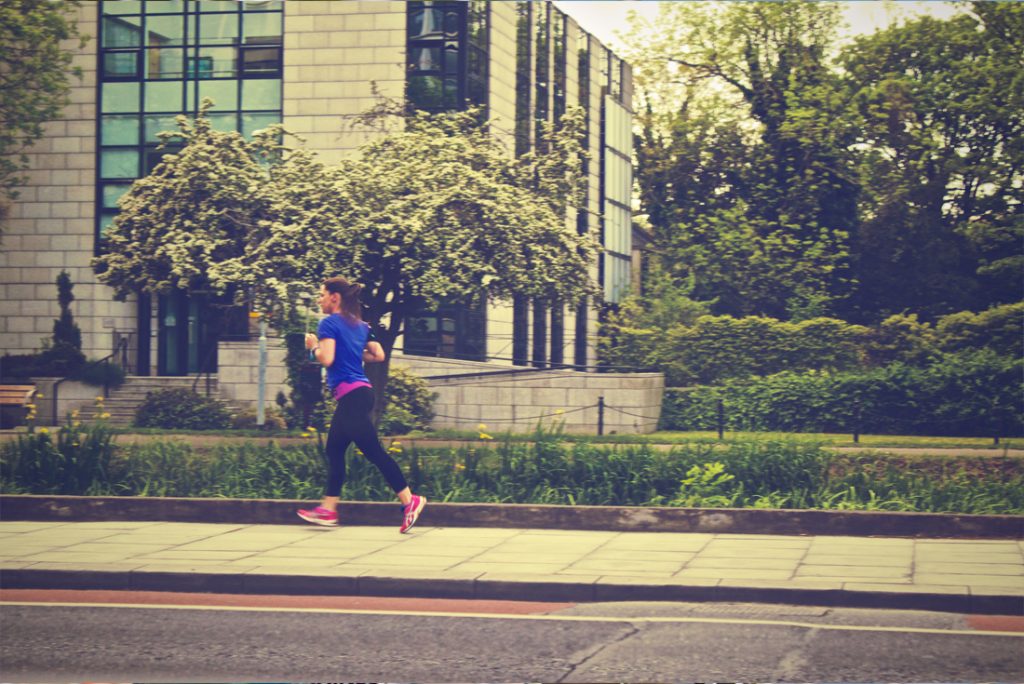October’s World Mental Health Day is the perfect reminder that running isn’t just about finishing lines or PBs. In England, 1 in 5 adults is living with a common mental health problem, and rates are rising steadily. From clearing your mind to boosting mood, regular runs can be a powerful way to care for your mental wellbeing. Here’s why it works, and how to make the most of your miles.
Why running does wonders for your mental health
When we move our bodies, our brains get busy releasing those feel-good chemicals that help lift our mood and reduce stress. Studies have found that physical activity can reduce the risk of depression by up to 30 per cent. And it’s not just long term prevention, research also shows exercise can actually be more effective than medication or therapy for easing mild to moderate depression.
The good news? It doesn’t take hours to feel the benefit. ASICS worked out that just 15 minutes and 9 seconds of exercise can boost your mood, making it easier than ever to fit a little mental health magic into your day (read more here).
Running brings even more to the table. Fresh air, a sense of progress, that boost of confidence when you finish a run you almost talked yourself out of. It’s a mix that really works.
Where you run matters too
If you can get outside for your runs, it can give your mental health an extra nudge in the right direction. Nature helps us switch off from the noise of everyday life and ease those whirling thoughts. That doesn’t mean treadmill miles don’t count. A run is a run. We take what we can get. But if you can swap even one indoor run for an outdoor one, the sunshine or drizzle or crunchy autumn leaves might give you just a bit of extra joy.
Trail running has a brilliant track record for boosting mood, but you don’t need a national park on your doorstep to feel connected to nature. Try treating your run like a moving meditation. Look up at the sky. Spot a cute dog. Listen to birds. Even in the busiest cities, those tiny moments of nature are there if we slow down enough to see them.
Solo runs vs social miles
Both can help, and it really depends what you need that day. A solo run can be the perfect place to process life without interruption. Headspace with trainers on.
But running with others brings its own kind of magic. Community is huge for mental wellbeing. A chatty few miles with a friend or joining a run club can make the world feel a little less heavy. Groups like Run Talk Run even host runs designed to support mental health through movement and conversation, which is such a brilliant idea.
Higher intensity exercise (think intervals or tempo runs) showed slightly bigger benefits for depression and anxiety. But the biggest takeaway is this, it doesn’t take much to make a difference. A gentle jog. A run walk. Even ten minutes around the block. It all counts.
Running is a tool, not a cure
As incredible as running can be for mental health, it’s not the whole answer. If you’re struggling, adding miles alone might not be enough, and that’s more than okay. Reaching out for extra help is brave and important.
Help & Advice
If you’re struggling with your mental health, you don’t have to go through it alone. Organisations like Mind, Samaritans, and NHS Every Mind Matters offer guidance, support, and practical tips to help you cope. Reaching out is a sign of strength, not weakness.
You deserve support. You deserve to feel better.
If you’re looking to start or get back into running, a beginner 5k plan is a brilliant place to begin. Small steps really can change everything. Check out Runna’s beginner 5k plan, designed to get you moving safely and confidently. You can grab 2 weeks free with code RWR2.


